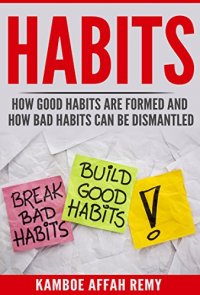Habit is the choice that everyone of us make sooner or later, and afterward stop thinking about yet continue doing, consistently consistent. They are things we learn to do through repetition and in the long run do either unconsciously or with next to no effort. To begin with, we form habits and after that, they form us. We are what we repeatedly do. Much of our behavior takes the state of repetitive actions: in the supermarket we grab our usual brand of coffee, we may follow a particular route in making a trip to our work and we savor coffee in the morning.
Every one of these behaviors have in common that they are being performed with a minimum of thinking. Behaviors as such, where actions are repeatedly being performed without thinking too much, can be grouped under the idea of habits. Habits have been shown empirically to strongly decide the behavior of individuals in relative stable situations, e.g. modality choice in transportation. Although one may be very conscious about performing the habit, e.g., preparing coffee in the morning, the actual performance of the habit may involve very little thinking. This is on the grounds that the actual behavior has been automatized to a large degree.
Habits have large advantages for our performance in everyday life; rather than thinking about routine decision problems we keep our minds free to think about issues that are not routine. Consequently, habits are mechanisms that allow us to efficiently allocate our limited cognitive capabilities. As such, the utilization of habits can be listed under the heading of procedural rationality. Habits run our lives. Much of what you do is based on a habit you’ve developed at some point in your life. In fact, as indicated by a 2006 study conducted at Duke University, over 40 percent of what you do consistently is habitual. In other words, you consistently finish the same actions, in the same place and at the same time.
Numerous habits are helpful, like eating healthy, exercising consistently and giving that “second glance” before switching lanes in a car. Other habits are harmful, like smoking, drinking excessively or spending too much time on the Internet. Habitual behaviors consistently go unnoticed in persons showing it, on the grounds that a person does not need to participate in self-analysis when undertaking routine assignments. Habits are some of the time necessary. You might think about these routines to be nothing more than small hindrances, yet some can have a long-term, debilitating impact on your life.
Universe: 6-Book Bundle
The Masters of Wisdom - A Treasury of Esoteric Knowledge
I'm a Product Of My Environment: Navigating the Path to Equity and Justice
Reviews:
No reviews yet.
Third Party Reviews:
No reviews yet. Why not link one?
You can suggest a blog review here
<< Next post in Archived Books
Previous post in Archived Books >>
2017-07-29






